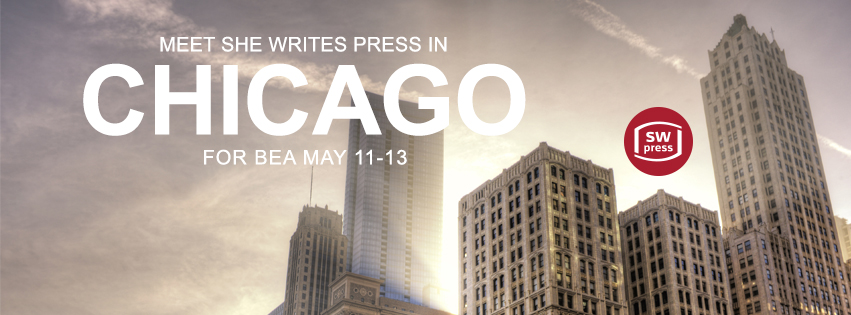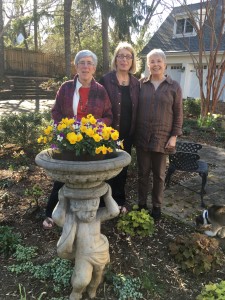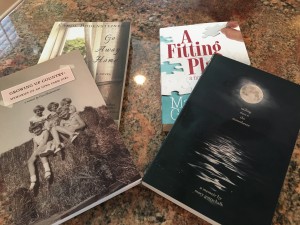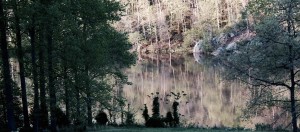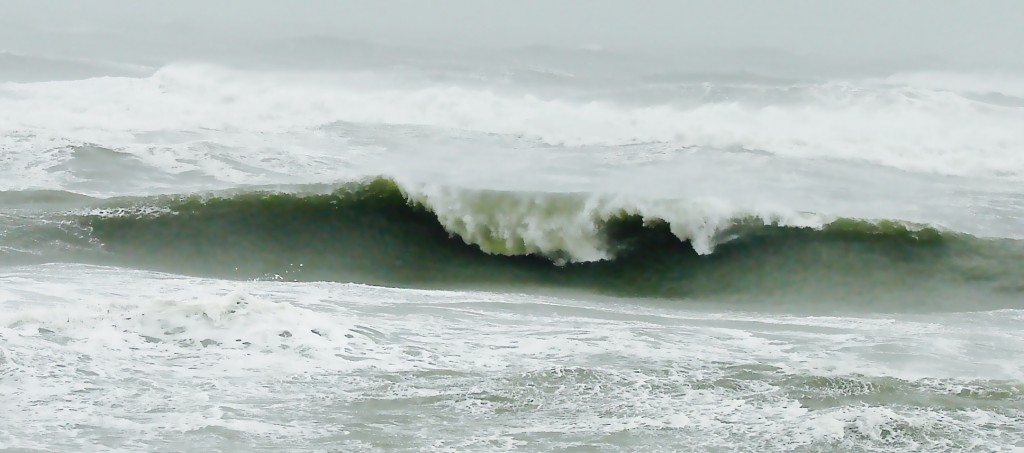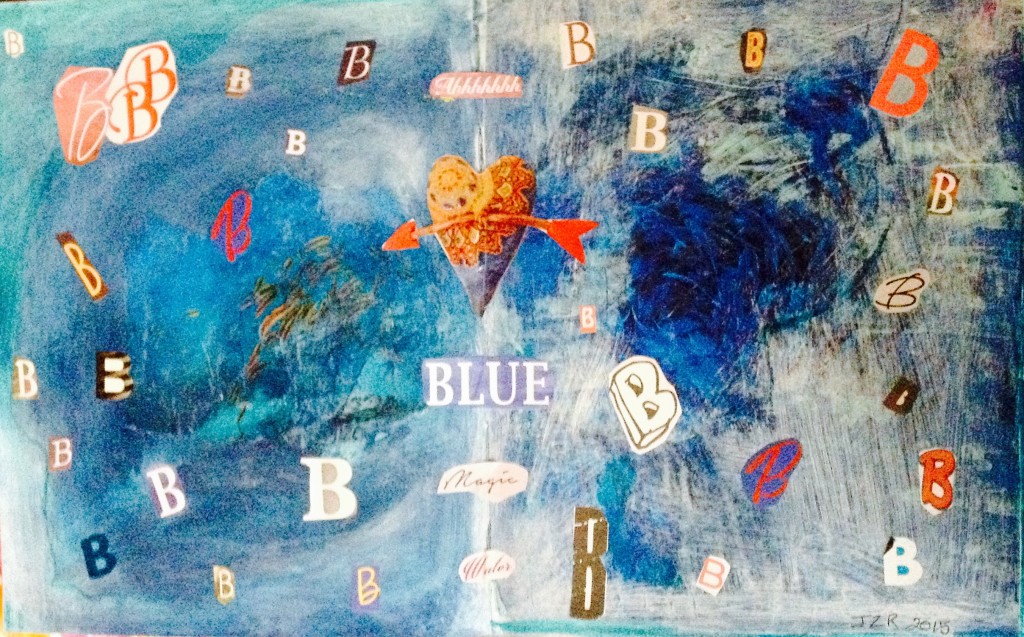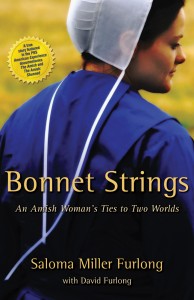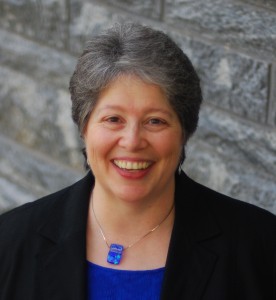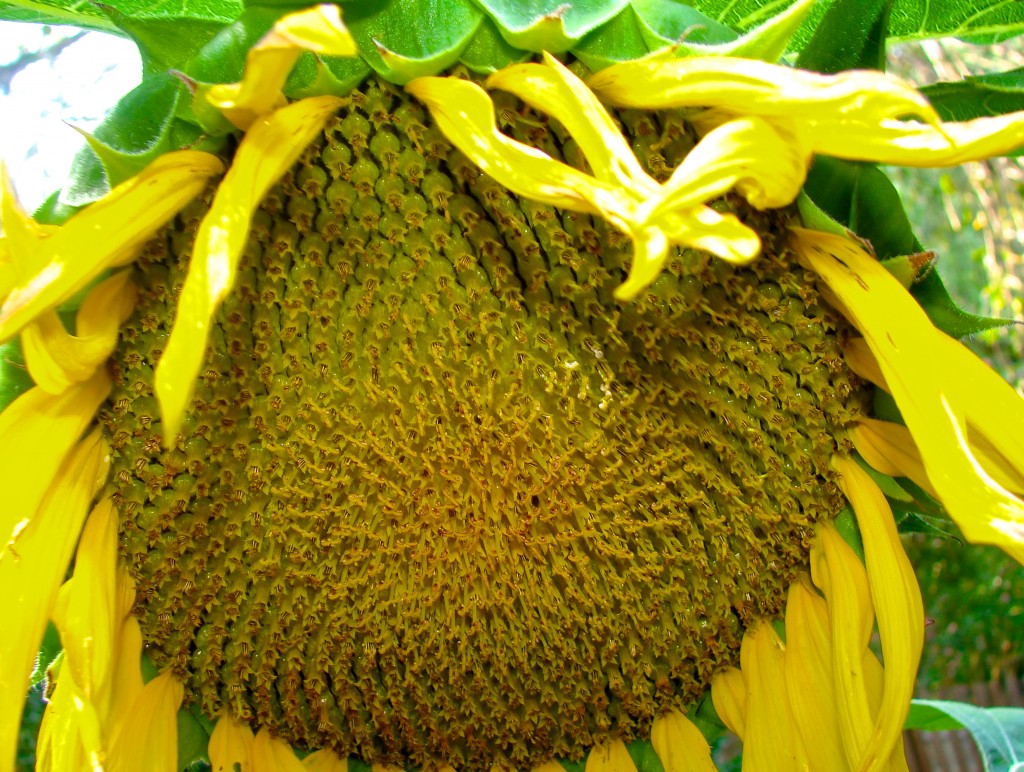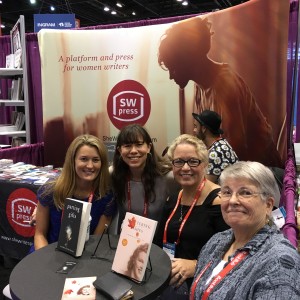
from left to right: My editor Annie Tucker, Brooke Warner, my publisher, Katrina Anne Willis, and myself.
I Arrived in Chicago last Tuesday afternoon and spent the evening trying not to worry about the next day at BEA. I’m not a crowd person and dislike noisy places. I’d been told that Book Expo America was a bellybutton to bellybutton kind of event, so I lived with that expectation overnight and into Wednesday morning. Not being good enough to be there kinds of thoughts kicked the cement mixer in my gut up several levels the next morning as the cab I’d hailed drew closer to McCormick Place, the huge convention center where I would spend a good part of my day.
Up two flights of escalators the crowd seemed tiny. But BEA wasn’t open to the public yet. I breathed deeply and told myself, I can do this. After registering for my badge I set out to find the She Writes Press booth where I’d finally meet my publisher Brooke Warner, and the community of women authors I am now a part of. Brooke gave us some ideas on how we could welcome those who visit the booth, what to look for as we explored the convention floor looking for others whose services we might want to use, and how not to be overly pushy pitching our books. After a quick lunch with several of the other authors I arrived back at the booth ready to be available to those interested in She Writes Press and the books they publish, most especially mine. There was still not much of a crowd.
I sat at small round table with two other authors, Linda Kass and Jennifer Dwight. Linda’s book, Tasa’s Song, was inspired by her mother’s life, and describes Tasa Rosinski’s life and escape as a Jew from Eastern Poland in 1943. It was the recipient of the 2016 Bronze Medal for Historical Fiction at the Independent Publisher Book Awards. BookList says, it ”depicts a heartbreaking time with great sensitivity and detail.” It was published just weeks ago and is available wherever books are sold.
Jennifer Dwight’s book, The Tolling of Mercedes Bell, is a thriller that the San Francisco Book Review calls, “An unforgettable page-turner.” Suspense Magazine says it’s “Full of surprises with impressive twists.” It won two finalist medals at the 2016 Indie Next Generation Book Awards in the categories of Suspense and Thriller. Published on May 3rd, it also is available in bookstores and on line.
We spent an hour and half together welcoming those who showed interest in our books and She Writes Press. The crowd was still unimpressive at 2:30 when several other authors came to take our places at the table. I began wondering if my crowd phobia was a figment of my imagination and whether BEA was going to be what I had expected it to be.
I slept in on Wednesday morning and spent time with Bill. This was our first real trip together since his knee replacement this past January. We had several lovely meals with friends we hadn’t seen in some twenty years recalling what life was like back in the day. And while I was off having a ball at the publisher’s dinner on Thursday night, Bill took in a play he’d wanted to see for a long time. It was very relaxing to be away from home without the phone ringing and my endless to do list shouting at me in the background. I could hardly contain my excitement at being there amongst all those writers, publishers, and industry people. I finally felt like a real author.
Friday morning, the last day of BEA, I was back at the booth at 9 AM and spent two hours with author Katrina Anne Willis, as people came and went asking questions about our books. Katrina’s book, Parting Gifts, a novel, was published in April, and is the story of three sisters who pull their lives together through tragedy. Karen Lynch, author of Good Cop, Bad Daughter: Memoirs of an Unlikely Police Officer, says “Parting Gifts is a rare treasure, the sort of book that leaves the reader attached to the characters long after finishing the final page.”
I was delighted by a visit from The Best Editor in the Whole World, Annie Tucker, with whom I loved working through the developmental and copy edits of my book. It was such a pleasure to finally meet her in-person. If there is another book in me, I’d hire her again in a heartbeat.
After my booth duty I took a walk around the convention floor and finally found the crowds as people lined up for books being signed by the likes of Jamie Lee Curtis, Richard Russo, and others. At other booths publishers and authors held up their books, approaching me as I passed by, wanting to give them away for free. I imagine it was not only about getting their books out to the public but also about not wanting to lug them home again. When my head began to pulse from the noise and crowds, I packed up and returned to my hotel for a late lunch and a nap.
It was truly a fabulous trip and I’m so glad I talked myself into taking the plunge. I’m still processing everything I learned about selling books, myself, and how I can operate in conditions I don’t normally seek out without making myself a basket case. It was an exciting hands-on learning experience that I’ll never forget. If God be willing and the creek don’t rise, I plan on being there again next year.
